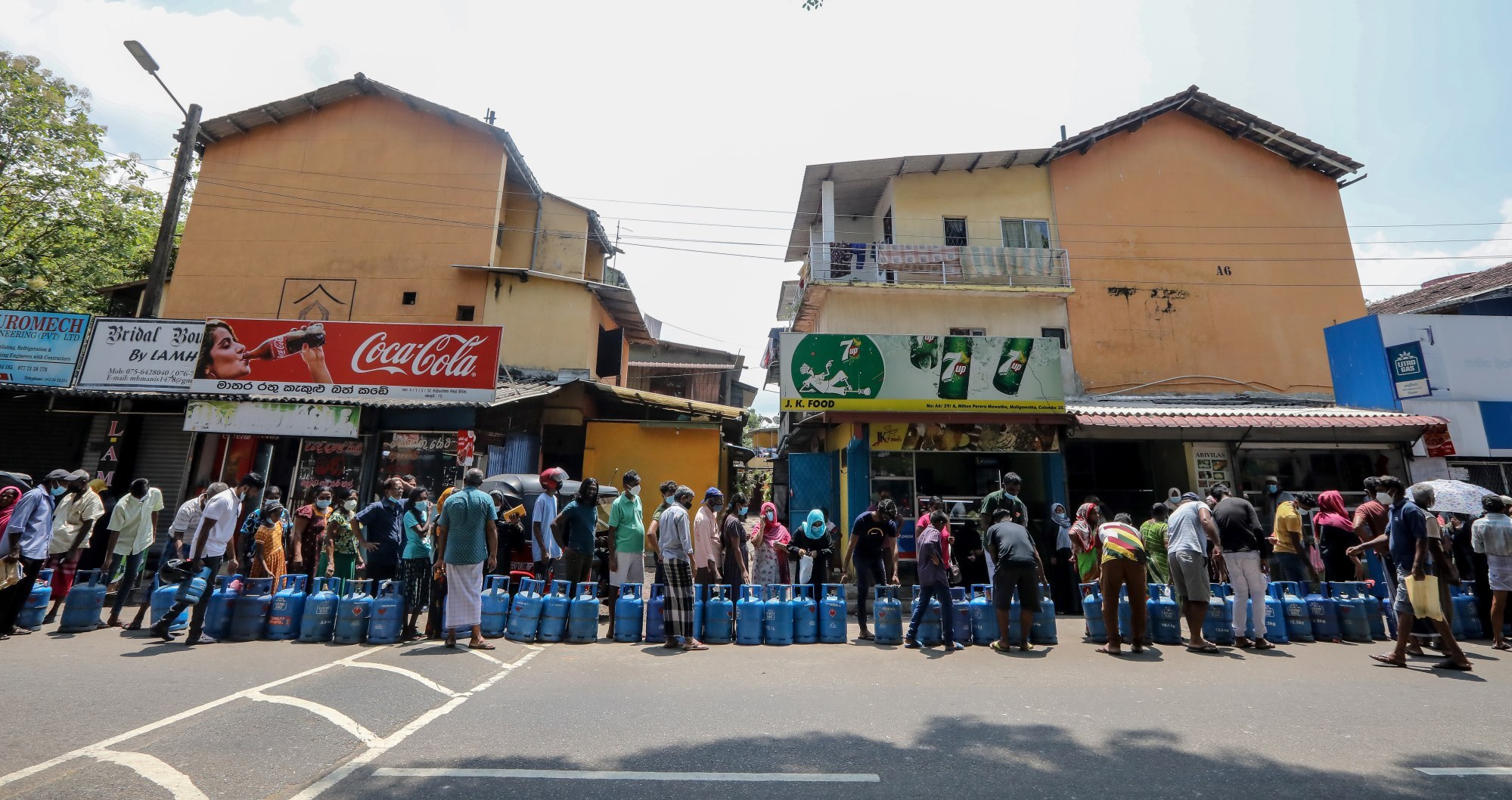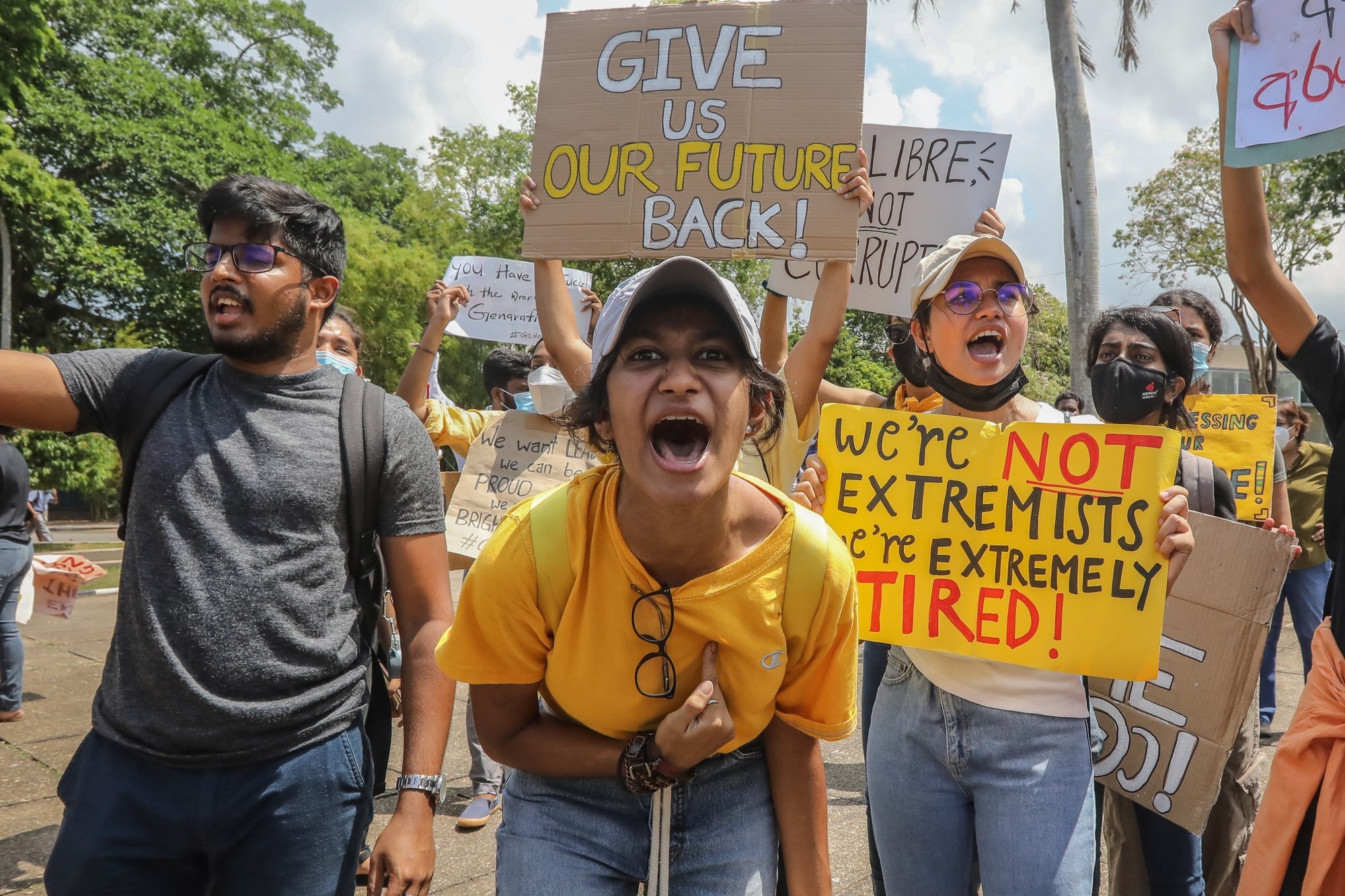
Sri Lankan business owners left reeling from shortages, power cuts amid spiralling economic crisis
- The island nation has imposed punishing power outages lasting half a day or more in recent weeks as it runs out of foreign currency to pay for fuel imports
- A last-minute curfew over the weekend dealt a further blow to restaurants and other businesses struggling with shortages and the pandemic
The energy shortage, triggered by dwindling foreign currency reserves to pay for fuel imports, has caused power outages lasting up to 13 hours per day – further punishing small eateries that had already been hit hard by a shortage of cooking gas since late last year.

“We were closed for weeks due to an inability to find gas, and when we finally got hold of gas for a much higher price, we were hit with the power cuts,” said Prash, the owner of Dosai Inc., a small takeaway shop in the north of Sri Lanka’s capital Colombo that until last month served South Indian cuisine.
Previously reliant on the dinnertime trade, Prash, who only gave one name, found it impossible to continue serving customers after his takeaway was beset by constant power outages from 6pm-10pm.
“We had to throw out food on a daily basis. Our only option was to temporarily close down. If the situation doesn’t improve in a few months, we will have to look at giving up the space, and selling the equipment,” Prash said.
‘Last-minute curfew’
About half of Sri Lanka’s restaurants, already badly battered by the pandemic, have been forced to close as a result of the recent shortages and blackouts, said Asela Sampath, president of the All Island Restaurant Owners’s Association.
Saturday’s “last-minute curfew announcement” dealt a further blow to the finances of those still in business, he said, as “a large volume of food, prepared to be sold on Saturday night” had to be thrown out.
“We are already struggling to meet our financial commitments, so this is an unbearable loss for our industry,” Sampath said. “If this continues it will drive some of the restaurant owners to suicide.”

“The curfew was announced with only two hours’ notice,” said Janaka, the owner of a family-run bakery in Moratuwa, a suburb of Colombo, who asked to go by a pseudonym. “Everything that was prepared was wasted, but we still have to pay wages and bills.”
The bakery, in Janaka’s family for 70 years, has been struggling lately amid the prolonged power cuts and a shortage of fuel to run the generator. “Just this Saturday, we didn’t receive our weekly spice order because the supplier didn’t have fuel for the delivery,” he said.
Dollar shortage
Sri Lanka’s foreign exchange reserves have dropped so low that it no longer has enough money to pay for two weeks of imports, according to Deshal de Mel, an economist and research director of Sri Lankan think tank Verité Research.
Power outages, which first began in January after the state-owned Ceylon Petroleum Corporation stopped supplying oil to thermal power plants, are expected to continue, de Mel said.
Is the IMF Sri Lanka’s best hope for its worst crisis in living memory?
Sri Lanka owes more than US$30 billion in foreign debt due to be repaid by 2026, and last week approached the International Monetary Fund for financing – having already asked India and China for help – but de Mel said this may take months to negotiate.
“Along with external debt restructuring, bridge financing accompanying an IMF agreement would provide some cushion for foreign exchange reserves, while Sri Lanka attempts to restore macroeconomic stability,” he said.
Inflation is running at 17.5 per cent, despite Sri Lanka’s central bank raising interest rates by 200 basis points from their pandemic-era lows. On Monday, central bank governor Ajith Nivard Cabraal – who had favoured ending reliance on foreign debt, especially from the IMF – announced on Twitter that he too had offered to step down.
Spillover effects
Restaurants and bakeries are not the only businesses to be rattled by the spillover effects of Sri Lanka’s daily power cuts.
Calcey Technologies, an information-technology solutions provider, has seen its 180 employees regularly forced offline by the outages, which render broadband internet unusable and cause mobile internet to slow down as cell towers run out of backup power.
“Our people need very little in terms of infrastructure, they need power and they need internet,” said Mangala Karunaratne, company founder and chief executive officer.
As struggling Sri Lanka casts around for cash, its China ties loom large
He said employees had made sacrifices such as reorganising their sleep schedules to work at times when there is power, but with no end in sight to the outages, the company was now looking to send its “critical team members abroad” to work.
Others such as Lalaji Sureshika, associate director of software company WSO2, have invested in expensive generators to ensure the lights stay on, deadlines are met – and her one-year old baby, who “used to cry every time the power went out”, is more comfortable amid a current heatwave.
Kalana Jayasuriya, owner of menswear retailer and producer Stripes & Checks, said his company had been unable to finish customers’ orders in time because of the prolonged power cuts.
The weekend curfew had further hurt sales, he said, at a time when the company was hoping to make up for pandemic-related losses by boosting sales for the Sinhala and Hindu new years this month.
Jayasuriya sees a new government as the only solution to Sri Lanka’s current crisis. “We will rise up from the ashes thereafter,” he said.
President Rajapaska on Monday called for a unity government to deal with the crisis and dropped his brother as finance minister, replacing him with the previous justice minister.
His office said in a statement that four ministers had been appointed “to ensure parliament and other tasks can be conducted in a lawful manner until a full cabinet can be sworn in”. The previous ministers of foreign affairs, education and highways will keep their positions, it said.
Additional reporting by Reuters


